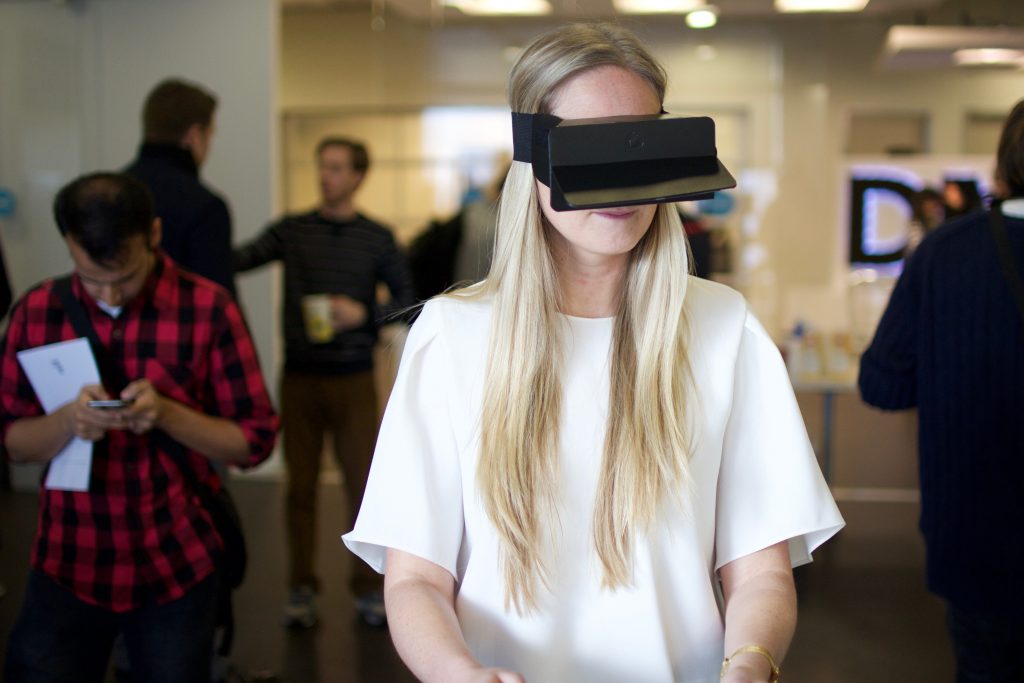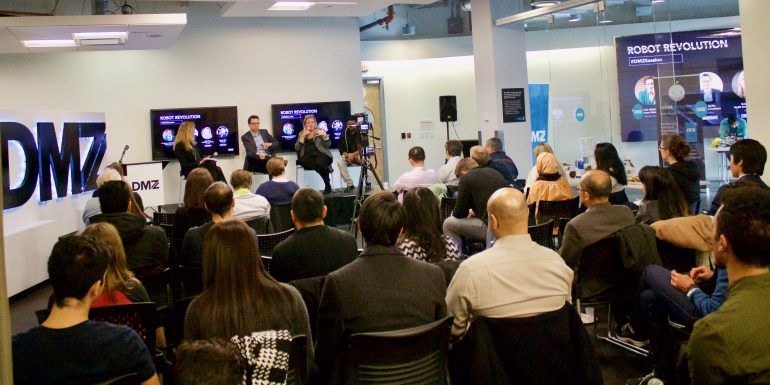As self-driving cars become closer to reality and experts warn that many jobs will be replaced by automation, it’s becoming increasingly imperative to answer the question of how governments and companies will cope with the changing face of the workforce.
Last week’s #DMZSession in Toronto hoped to answer this question by inviting panelists who could provide perspectives on how artificial intelligence will affect businesses, the implications of automation on the job market, and emerging developments in robotics.
Sean Mullin, executive director of the Brookfield Institute; Krista Jones, head of work and learning at MaRS; and Kavaskar Thiya, founder and managing director of Nikola Labs provided their perspectives in a panel moderated by Ryerson University’s Dr. Stephanie Walsh Matthews, who leads a research consortium on robotics and autism spectrum disorder.
“I see the inevitability of software automation occurring in all industries around the world. I don’t see an area that’s not being impacted in the short term,” said Jones. “I get most concerned as a citizen about those who don’t have access to incremental training or who aren’t able to keep up with the devices that we’re using. I see us creating a wider divide between the haves and the have-nots.”

According to a study from the Brookfield Institute, 42 percent of jobs are at high risk of being automated over the next 20 years in fields like office support and general administration, sales, services, and transporation. Mullin notes that these jobs are correlated with low levels of university attainment, and suggested that we need to re-examine our social safety nets to prepare for the changes that automation brings.
“If you look at the types of competencies that are going to promote success in the workforce under these types of changes, they’re things like creativity, critical thinking, judgement, cognitive ability, and the ability to interact with people,” said Mullin. “We’re going to need to create a package of things like a strong social safety net, early retirements and rapid retraining.”
Thiya said that education is key to preparing for the automation age — and that part of the onus is on individuals to educate themselves. “Media has a big role to play in teaching people what machine learning is and what artificial intelligence is,” said Thiya. “You don’t have to depend on a school and you don’t have to wait for curriculum to catch up. You can go online and learn anything you want on YouTube.We definitely have to put it on ourselves to be ready for [imminent changes in] the workforce.”
Jones added that it’s up to individuals to educate themselves because the pace of change is too fast for institutions to keep up. “This transition has to be owned in the next 10 to 15 years by the individual, because we won’t be able to change bureaucratic systems fast enough to keep up with the change that’s happening in the world.”


